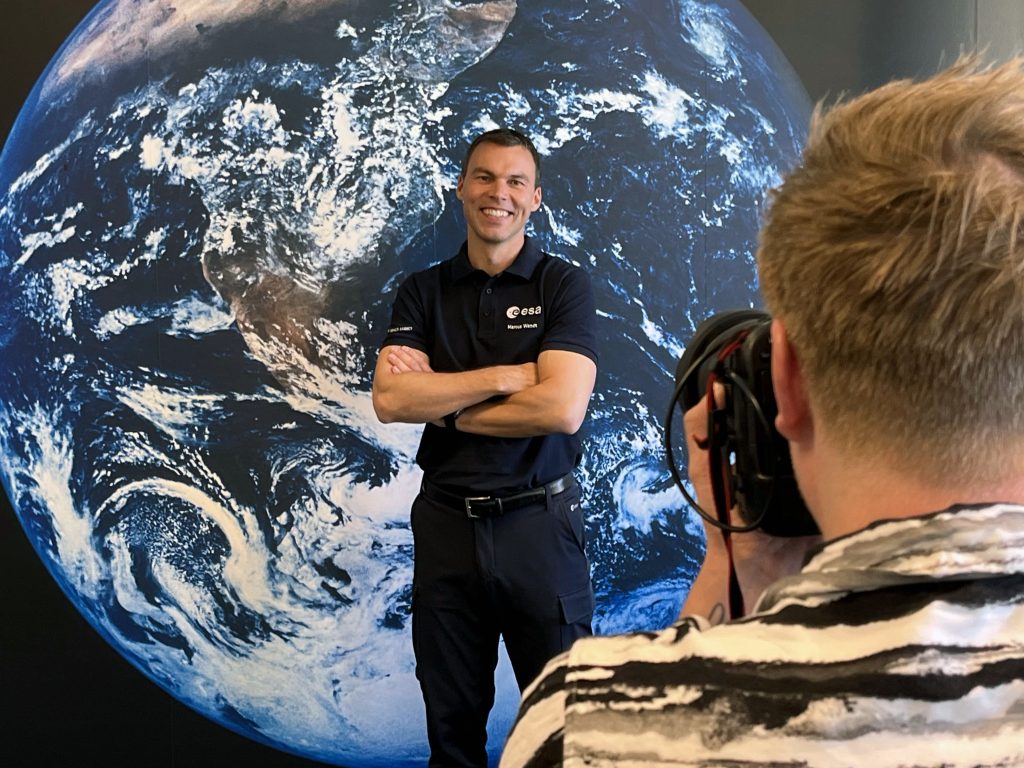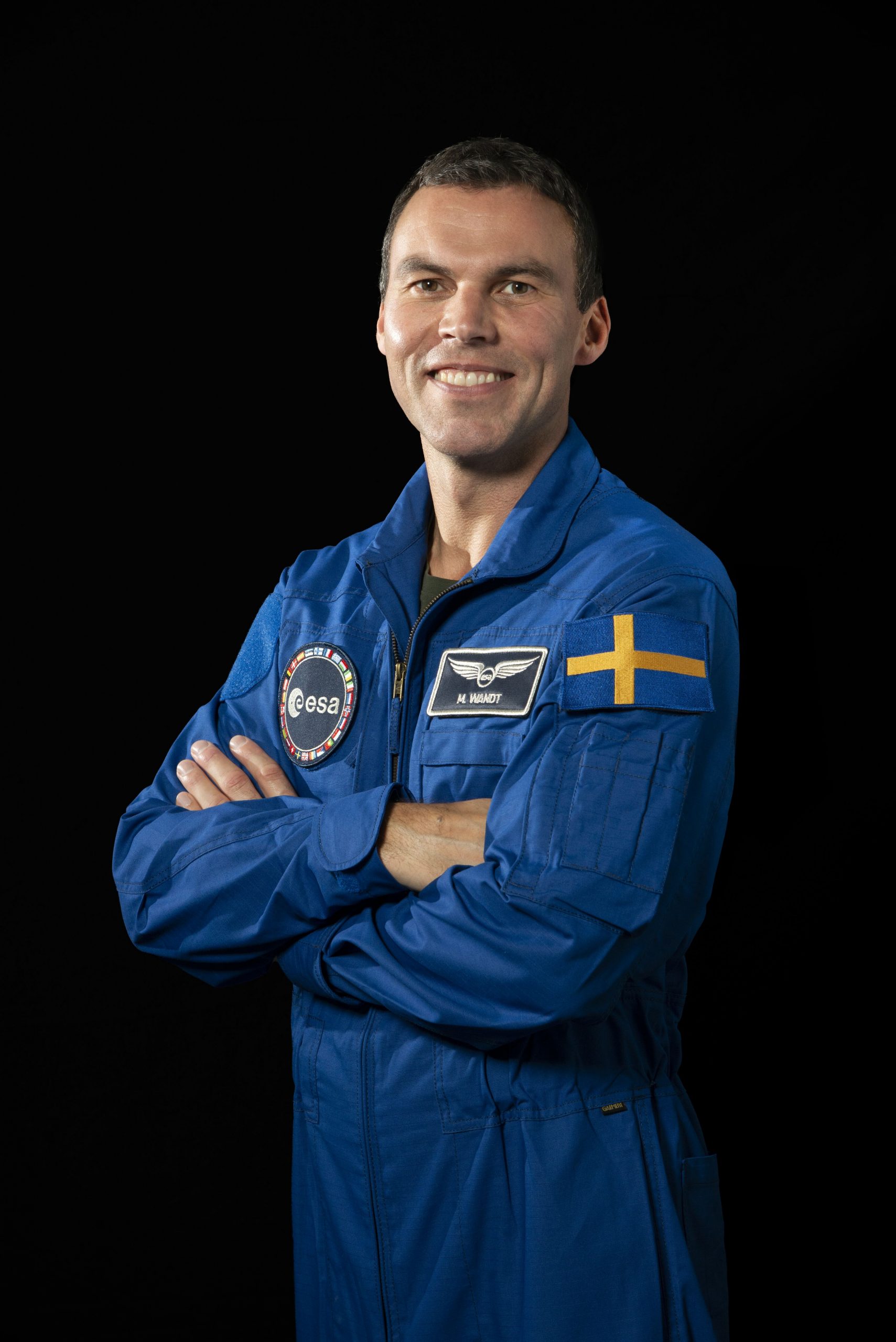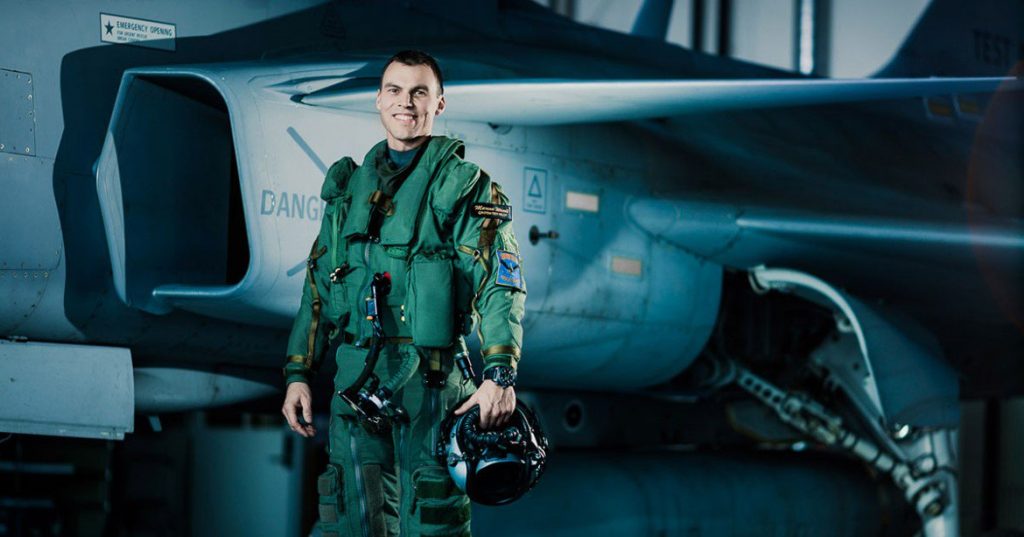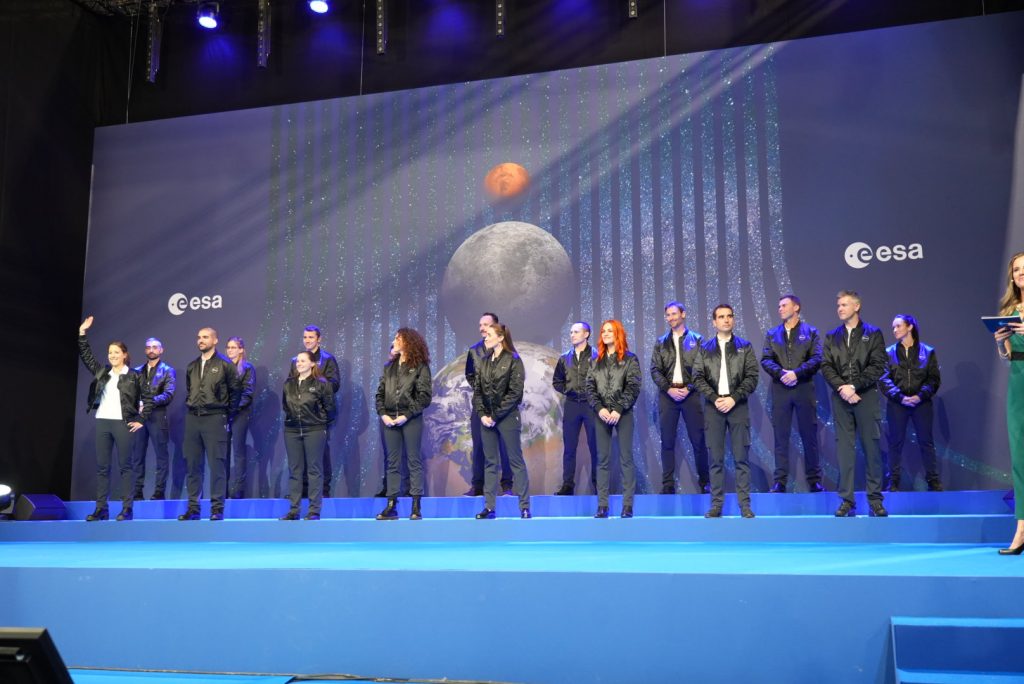A conversation in the kitchen
When Marcus returned home that evening, he had no idea what his wife was about to tell him. After an exciting week working as a test pilot at the Swedish aerospace and defence company Saab, she suddenly dropped a question while scrolling through her phone.
“Marcus, have you seen that they are recruiting astronauts?” she said.
“Really?” he replied, immediately leaning towards the screen.
“Hmm, maybe I shouldn’t have said that, huh?” she said with a smile.
Marcus opened the ESA website to discover an astronaut selection announcement – the first one in over a decade – and that applications were open. He also noticed that thousands of people had already visited the page. Even when his initial instinct was to apply, Marcus took the time to consider it.
Choosing his path
Over the next few days, Marcus pondered the pros and cons. Was becoming an astronaut something he could truly dedicate himself to? With all the hard work it would require and the risks and sacrifices involved, did he genuinely believe it was right for him?
His intuition drew him towards it, but Marcus wanted to be certain that he could commit to it. He sat in front of the computer and began jotting down his thoughts.
“I need to put my thoughts into words. Writing them down helps me detach from my emotions – I am a rational person. Even though my instincts guide me in many instances, they are subject to rational thinking,” he explains.
“Believing in what I do has always been important to me. Questioning my actions and then articulating why I do what I do is a way for me to test myself,” he adds.

Marcus Wandt on the day his mission to space was announced in Stockholm, Sweden, on 16 June 2023. Credits: SNSA
He took his time formulating his response, but by putting it into words, he confirmed his initial instinct. “I contemplated it for a while, and I came to the conclusion that I truly wanted to become an astronaut, and I genuinely believe space exploration adds value to the development of humankind,” Marcus explains.
After some introspection, he was convinced that “this was the opportunity I had been searching for to contribute even more to our society.”
A challenging selection process
Marcus submitted his application to ESA in April 2021. Several months later, after multiple selection rounds, he went through three testing phases and two interview rounds.
“The selection process was demanding. I had to focus intensely during the tests in Germany. After the initial mathematics and physics tests, I remember thinking, ‘I used to be faster at this!’” recalls Marcus, born in 1980.
“The other candidates were fantastic. Participating in such a selection process with skilled individuals from various fields, all vying for a dream job, was inspiring,” he added.
When he successfully completed the third testing phase at ESA’s European Astronaut Centre in Cologne, Germany, where the candidates’ physical and mental abilities were assessed according to international standards for space travel, the number of candidates decreased from the initial 22 500 to 400.
“The possibility of being part of the final selection became more real. After the medical tests, there were fewer than 100 of us left. At that point, I had a serious discussion with my family, carefully considering the practical consequences of a potential new life – not because I thought I would be chosen, but because I believed it would be irresponsible not to have a clear understanding of how it would impact my family,” Marcus explains. “They supported me.”
Marcus found the two final interview rounds the most challenging part but also the most enjoyable. “I enjoy interacting with people, even when they try to push me out of my comfort zone, which they succeeded in doing now and then,” he admitts.
The phone call
More than a year and a half had passed since Marcus submitted his application. It was November 2022, and he was in northern Sweden for his job as a test pilot. So far, all communication regarding the selection process had been through email, but suddenly the phone rang. The call was from France.
On the other end of the line was Josef Aschbacher, ESA’s Director General. “You made it,” he said. “He informed me that I had been selected and invited to Paris for the final announcement,” recalls Marcus.
Marcus’s journey to space had just begun.





